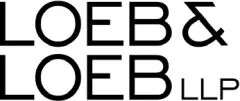- within Consumer Protection topic(s)
On July 3, 2025, a federal court rejected Safeway's attempt to make customers resolve a false advertising lawsuit in arbitration instead of court. The lawsuit involves customers from California, Oregon and Washington, D.C., who joined Safeway's Rewards program years ago and claim Safeway falsely advertised temporary wine discounts that were actually permanent prices available to everyone.
Safeway tried to bind consumers to an arbitration clause added to the program's terms in May 2024 by sending an email to members about updated "Terms of Use," which included the new arbitration rule. The email included a link to the full terms and stated that customers could opt out within 30 days of their first purchase under the new rules. The court found, however, that Safeway didn't prove that customers actually saw or agreed to these new terms. Some plaintiffs said they never got the email, or it went to junk or promotions folders, and one hadn't used the email linked to their account in years. The court also noted Safeway never showed what terms customers agreed to when they originally joined the Rewards program, which for some was many years before.
Ultimately, at least this court believed that merely sending a notice of a change to terms is not sufficient to bind consumers, if there is no evidence that the consumers actually read the notice. Notably, the court refused to find that the consumers were on constructive notice merely because the email was sent, especially since the consumers originally signed up to the terms in person (not via email). The court also held that merely continuing to use the program after the May 2024 update wasn't enough to show they agreed to arbitration, especially since there was no reason that they needed to go back to the website to use the program.
The content of this article is intended to provide a general guide to the subject matter. Specialist advice should be sought about your specific circumstances.


